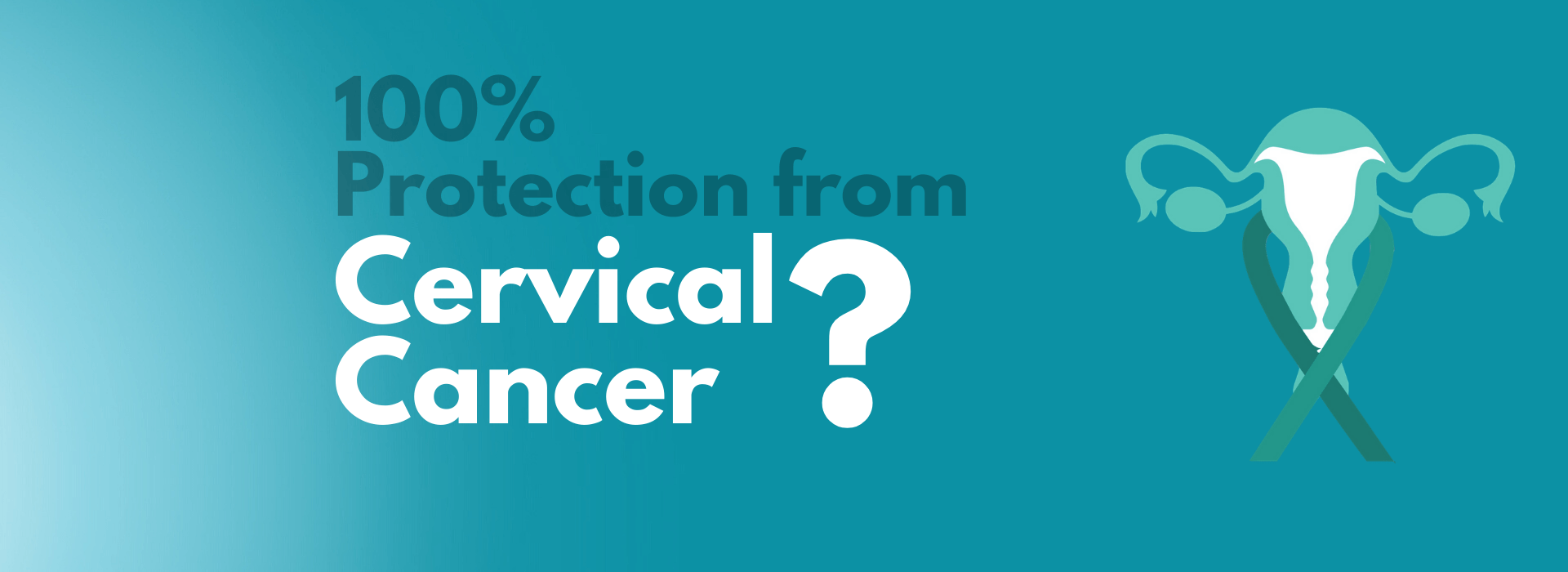
31 Oct Do you want to be 100% protected from cervical cancer?
Now, after we have given you all the information about the 100% preventable nature of this kind of cancer. The fourth blog in the series talk about the ways in which you can actually prevent yourself from being a victim of this disease.
The methods of prevention and early detection revolve around catching hold of the disease or any other pre-cancerous conditions and nip it in the bud. There are two methods of prevention and early detection. The first way towards prevention is the regular vaccination of girls starting from the age of 9 followed by regular smear tests at an interval of 3-5 years as per the recommendation of the gynaecologist. The blog enumerates all the ways in which you can prevent yourself and your loved ones from being a victim to this deadly disease.
Vaccination – The first and most important step
The spread of an STI is usually to deal with any kind of sexual contact; skin contact or bodily fluids. They are most likely to spread by the following ways –
There are vaccines available to fight against the Human Papilloma Virus. There are two kinds of vaccines available – Gardasil and Cervarix. It is important for all girls after the age of nine. The course of the vaccines are divided into two types depending on the age at which you are taking the vaccine. For more information, we recommend you to see a gynaecologist.
- After the age of 9 – The course of the vaccine if taken after the age of 9 is taken twice. If one dose is taken today the next is taken six months later.
- After the age of 15 – The course of the vaccine if taken after the age of 15 is taken thrice. If one dose is taken today, the next will be taken two months later and the third, six months from the first dose.
If, for any reason someone is unable to get themselves vaccinated at the stipulated time, they can go in for the Catch-Up vaccine that can be taken anytime till the age of 26 provided you are not sexually active.
The Smear Tests
Vaccination is the first step in the journey of prevention of cervical cancer. But, it is very important to know, it is not the only way. It is imperative that women get themselves screened at regular intervals, even if they have been vaccinated as a girl. The advantage of regular screening tests is the constant vigilance on the changes that your vaginal cells are going through. The earlier the changes can be detected the earlier on the disease can be detected and can be treated accordingly.
There are various kinds of screening tests that are conducted – the most important and widely used being the Pap Smear Test. There are a number of different tests that can be taken instead of the Pap Smear, like the VIA. Some, like the HPV-DNA Test are considered to be follow up tests after an abnormal report on the Pap Smear. Basic details of the different kinds of tests are given below. For a more intensive understanding we advise you to visit a gynaecologist at the earliest.
- The Pap Smear – The Pap Smear test is the most widely used test for detection of cervical cancer. It is advised that all women above the age of 30 take this test at a regular interval of 3 years and all women above the age of 50 or after achieving menopause take this test at an interval of 5 years provided they have been regular with their screening all the previous years.
The aim of the Pap Smear Test is to detect any abnormal changes in the cells of the cervix as early in their progression as possible. Our aim with this blog is to eradicate any hesitations that women might have regarding the test. The procedure of the test involves the doctor inserting a piece of cotton, a brush or a small wooden spatula through your vagina to be able to scrape and collect cells of the cervix. The cells are them viewed under a microscope to determine if any abnormalities exist.
We advise you to keep the following things in mind before going for your Pap Test to obtain optimum results
o The best time to schedule a test appointment is 5 days after your menstrual period
o Don’t use tampons, birth control or vaginal creams 2-3 days before your test appointment
o Do not have vaginal sex for 2-3 days before your test appointment
- The HPV-DNA Test – The HPV-DNA test aims to check the presence of an HPV infection in the DNA/RNA of the cells of the cervix. The sample of the cells are taken from the cervix. The same sample as taken during a Pap Test can be used for the HPV-DNA Test as well. This test is normally used as a follow up test if you receive an abnormal Pap Test to determine whether you need any further medical assistance
- Other more economical tests like the VIA (visual inspection with acetic acid) and VILI (visual inspection with Lugol’s iodine) are carried out in India specially to cater to the rural audience.
We cannot reiterate enough that cervical cancer is the only preventable cancer, provided it is detected and treated timely. Why delay it any further! Why take the risk of being just another statistic! Take the reign of your health into your own hands Visit your gynaecologist now and help CAPED create a Cervical Cancer Mukt Bharat.
Author – Taru Medha (CAPED intern)
Bibliography/Resources:
http://cancerindia.org.in/cervical-cancer/
https://www.cancer.gov/types/cervical/patient/cervical-prevention-pdq
https://www.nhs.uk/conditions/cervical-cancer/causes/
https://www.cancer.org/cancer/cervical-cancer.html


